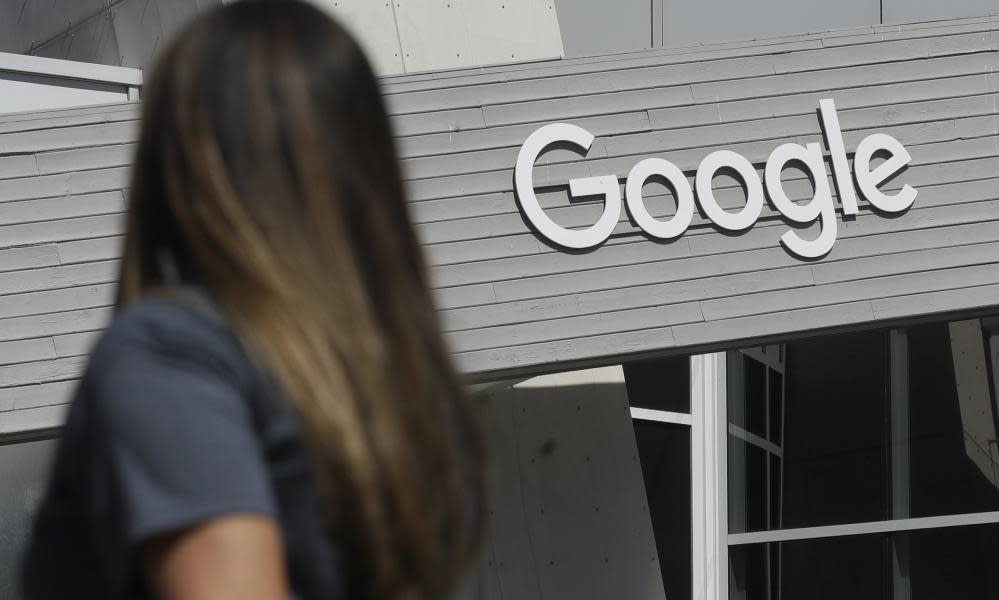Lawsuit against Google is a significant and long overdue moment

The share price of Alphabet, Google’s parent company, did not shudder as the US justice department filed its historic lawsuit. The company remains a $1tn enterprise that can hire America’s best lawyers. Investors also know these cases take years to resolve, just as the Microsoft one did in the 1990s.
But excitement is legitimate. After a decade of fawning over its big tech titans, the US is asking the right questions. Google is a “monopoly gatekeeper for the internet” that uses “pernicious” anti-competitive tactics to extend its power, alleges the DoJ’s lawsuit.
That assessment takes the important step of recognising that a product that is free to use, and that is valued by consumers, can still cause harm. When a single company has 80% of the “search” market and advertising dollars, the danger is one of crowding out – the loss of innovation and the “next Google”, as William Barr, the US attorney-general, put it.
At this stage, it’s hard to know what remedies would follow if the DoJ wins. One assumes payments to mobile-phone makers to install Google as the default search engine would be one route. The DoJ’s lawsuit complained specifically about that practice.
-
Google faced two massive EU fines for abusing market dominance in barely one year. A record-breaking €2.42bn (£2.2bn) penalty in June 2017 for tilting the market against rivals in the internet shopping business, was overtaken by a €4.34bn fine in 2018, over search engines on its Android mobile phone operating system. Google is appealing both decisions.
Apple was ordered to pay a record-breaking €13bn in back taxes to Ireland, after EU regulators ruled that a sweetheart deal between the company and Irish tax authorities was illegal state aid. In 2014, the tech firm paid tax at just 0.005%, while the usual rate of corporation tax in Ireland is 12.5%.
Facebook was fined €110m by the EU for providing misleading information about its 2014 takeover of WhatsApp. Regulators found it had broken pledges not to match user accounts on both platforms. Earlier this month Bloomberg reported that the social network was under scrutiny from EU antitrust regulators, a move not confirmed by the commission.
Amazon is now being formally investigated by EU competition authorities, who are concerned the e-commerce giant could abuse its position as host to tens of thousands of small and medium-sized retailers.
For now, though, one can merely applaud the fact that the DoJ has reached for the Sherman Act, the heaviest weapon in the anti-trust arsenal. It marks an overdue challenge to big tech’s confident belief that it can operate beyond accountability.
The change in the regulatory and political weather emerged when the bosses of Alphabet, Amazon, Apple and Facebook appeared before a congressional hearing in August. The questioning was hostile and precise. Observers could see how undoubted tech wizardry has been harnessed to old-fashioned commercial ruthlessness to squeeze competition.
The European commission reached that conclusion a long time ago and has conducted three big investigations into Google over the years. The UK and Australia are also busy re-drawing the regulatory map for the digital sector. But nothing has the potential impact of a big DoJ anti-trust case. To repeat, the process will take years. But it is a big and overdue moment.
Troubled timeline ahead for the Trainline
One can understand why Clare Gilmartin, chief executive of Trainline, the ticketing app firm, wants to quit to spend more time with her family. She collected £15.8m via the sale of shares in last year’s flotation, sold another £3.2m-worth last month and still has a stake in the company valued at £22m. Why work?
But you can also see why Trainline’s share price fell 13% as Gilmartin said she’ll be logging out next February. The timing of her departure – in the middle of a pandemic and with a major overhaul of the railways coming down the track – looks unnerving from the point of view of other shareholders.
The pandemic itself may be the simpler of the corporate challenges. Trainline’s revenues from selling train tickets to UK passengers have collapsed with the plunge in rail travel, but there’s little that can be done on that front. By contrast, Trainline’s position within transport secretary Grant Shapps’s slicker, smarter 21st century railway (we hope) is up for grabs. Having an experienced chief executive would be useful at this moment.
The problem is this: the train operating companies have been semi-nationalised and are being forced to take fees capped at just 1.5% of their cost bases. Yet Trainline has been left alone and can continue to enjoy 5%-plus commission rates from those same train firms, even when they’re on state support. That set-up looks anomalous.
It may not be Shapps’s most pressing problem but he can’t dodge it in his white paper. Simplifying fare structures is meant to be one of his big ambitions. If simplification also means lower fares, he could claim a few quid back for passengers by squeezing Trainline’s commissions, or by making direct booking an easier experience for passengers.
Trainline, naturally, will hope to position itself as part of the ticketing solution. It is, after all, the biggest app in the market. But life on the railways is always political – now more so than ever – and Trainline cannot assume its comfortable pre-pandemic existence, which delivered a £2bn price-tag at float, will return.
Private equity outfit KKR, which funded Trainline’s pre-float expansion, sold its last shares last December. Now Gilmartin is off, to be replaced by a chief operating officer who arrived only a month ago. You can’t blame those investors still on-board for wondering whether this apparent rush to disembark is telling them something.


